update:March 6, 2025
A special interview for the Toyota Foundation’s 50th year anniversary project
One book brought together two female entrepreneurs – their activities encourage women to enjoy making social contributions through Nariwai entrepreneurship
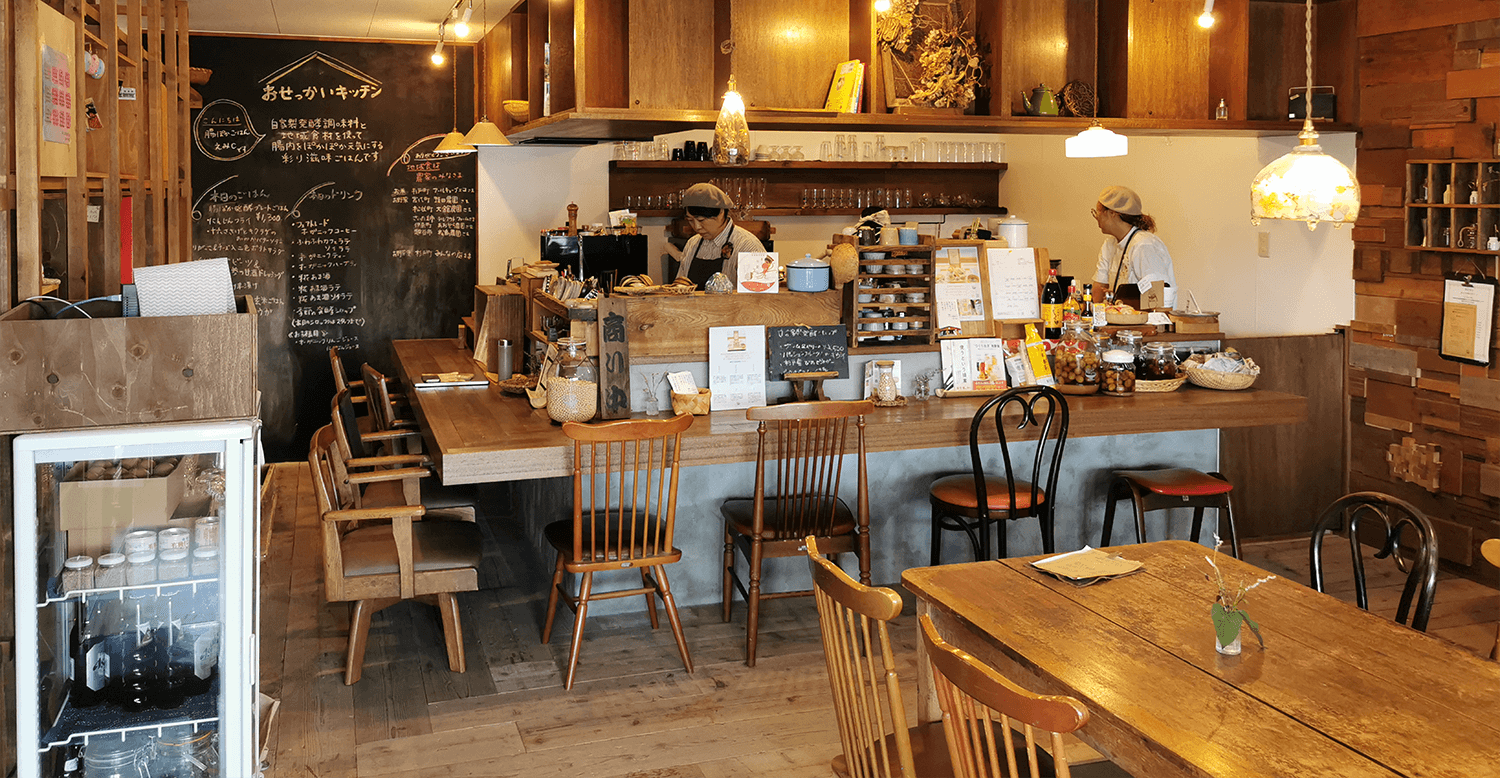
Interviewed by Ryota Mutou and Natsumi Washizawa
Japanese text written by Nobuaki Takeda
Translated by Naoto Okamura
In 1986, Japan enacted the law on equal opportunities for men and women in employment. Although it has been nearly 40 years since then, women’s social participation remains slow and is seen as problematic. Simply put, a patriarchal structure has still been entrenched in society to this day. Things are all the more difficult when it comes to women advancing into society through starting their own business. Against such a backdrop, a female empowerment project was launched to encourage women to create a small business by doing what they love so as to help resolve small problems in their community.
The Toyota Foundation made grants on two occasions, first in 2014 and second in 2018, which helped produce a number of female entrepreneurs starting their Nariwai small business. What’s more, this has led to the creation of a nationwide collaborative platform for women-led small businesses called Watashigoto (my own business) Japan. In an interview with the Toyota Foundation, Watashigoto Japan co-representatives, Ms. Keiko Ito and Ms. Maki Yaguchi, talked about the secret of their successes.
Details
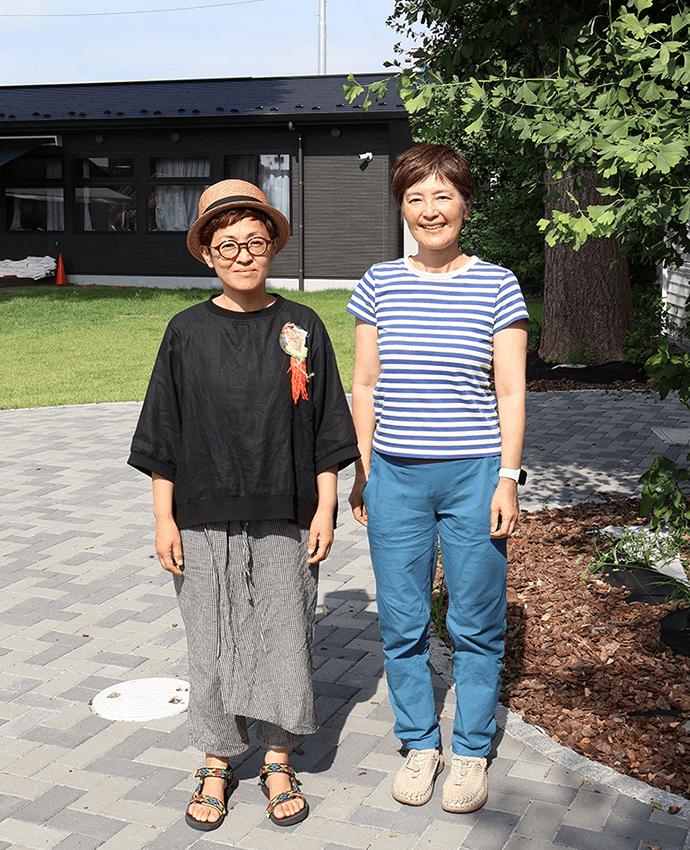
- Program
- 2014 Grant Program for Community Activities in Japan
- Project Title
- A female empowerment project to restore a sense of autonomy by a network of 25 female small business entrepreneurs – My action can bring about change! Stop depending on others and stop petitioning
- Grant Number
- D14-L-0200

- Grant Period
- April 2015 to March 2017
- Main area of activity
- Yamagata Prefecture
- Abstract of Project Proposal
- This project aims to empower women to turn their favorite activities into small businesses, or what is called Nariwai in Japanese, in order to help solve little problems in a local community. This process helps them to boost their self-esteem and produces a group of 25 proactive female entrepreneurs over a two-year period under the slogan “My action can bring about change. So, let’s do it together!” Each female participant becomes a change agent in her own right and spreads this empowerment movement in their circle of friends, seeking to break down the deeply entrenched perceptions – dependence on the government and others, work meaning being in employment, and feeling ashamed of not working as a full-timer – that have persisted in the minds of Japanese people since the Edo Period (1603 to 1867). This is a project to start empowering women and restoring their autonomy.
- Program
- 2018 Communication with Society Program
- Project Title
- Our work style revolution! Let’s make Nariwai small business entrepreneurship a work-style standard in Japan.
- Grant Number
- D18-SC-0003

- Grant Period
- April 2019 to March 2021
- Abstract of Project Proposal
- This project aims to present and establish “Nariwai small business entrepreneurship” -- one that can contribute to community building through your unique way of creating work -- as one of work-style options. To that end, the project intends to 1) present to society impacts of Nariwai entrepreneurship activities in numerical terms; 2) create a platform for communicating information on Nariwai-running organizations nationwide; 3) organize “the 2019 gathering for local community work creation.”
It started in Tsuruoka City, Yamagata Prefecture
In 2014, the Toyota Foundation made a grant to a female empowerment project to restore a sense of autonomy by a network of 25 female small business entrepreneurs – My action can bring about change! Stop depending on others and stop petitioning. Before launching the Watashigoto Japan network, Ms. Ito, who resides in Tsuruoka City, Yamagata Prefecture, northwestern Japan, started what she called Tsuruoka Nariwai Project aimed at encouraging women to create small businesses (or Nariwai) that help resolve their community’s little problems by doing what they love. That was the forerunner of Watashigoto Japan. The project sought to match up what women love to do or what they are good at with problem solving for local communities, thereby nurturing Nariwai small business entrepreneurs who can generate 30,000 yen or so in monthly profit.
“When I moved to Tsuruoka City with my family in 2011, I initially had no acquaintances here. I started working as an advisor to a semi-public organization in the city and one of my missions was to create jobs in the municipality,” Ms. Ito said.
Up until then, the city government had taken various measures to create jobs. Doing similar things would not work, she thought to herself. “It was then I came across this book by Dr. Yasuyuki Fujimura, called ‘100 cases of businesses generating 30,000-yen profit,’ which is published by publisher Shobunsha,” she said. “It says it is okay to start small, so I felt there may be someone who would like to try. I launched this project in 2013.”
In the second year, nine people stepped forward to start their business. Ms. Ito was beginning to think that there would be more women wanting to become entrepreneurs if she continued this activity. But the job with Tsuruoka City’s semi-government organization was limited to three years, “The momentum was building, but with no follow-up action taken, everything would end up in vain. I thought it would be such a waste,” she said. Instead of organizing lectures by experts, she wanted to fully pursue ways in which people would be able to compare notes and offer advice to each other. “I wondered to myself if they would really launch into business. I wanted to do such a social experiment.”
She then encountered an incident that prompted her further to apply for a grant from the Toyota Foundation to secure an operating fund. Back then, a woman working part-time told Ms. Ito in late March (near the end of a fiscal year in Japan) that her job from the following week was not secured because it was not yet approved by a board meeting at the end of the fiscal year. This caught Ms. Ito by surprise. “It was her job, but she could not decide what to do about it on her own. So, I said to her ‘why don’t you create your own work?’”
In the Toyota Foundation’s grant application form, there was a section requiring an applicant to write down their ideas or thoughts. “I wrote bravely ‘Stop petitioning and stop depending on others’,” she said with a laugh.
She succeeded in obtaining the grant from the Foundation and held lectures on wide-ranging topics from starting a business to filing tax return to doing public relations, to name but a few. She found out that a lot of people in the local community had something they wish to do, and 25 to 30 people completed her program during the course of two years. In particular, some of those participants in the second year went on to create a group called Nariwai Alliance after they completed the program. “These practitioners were able to continue doing things because it was fun. Though small, they launched their own business, expanded a circle of their fellow entrepreneurs, and found that very interesting. I think they can continue doing what they love and keep on doing because it is fun for them,” she said.
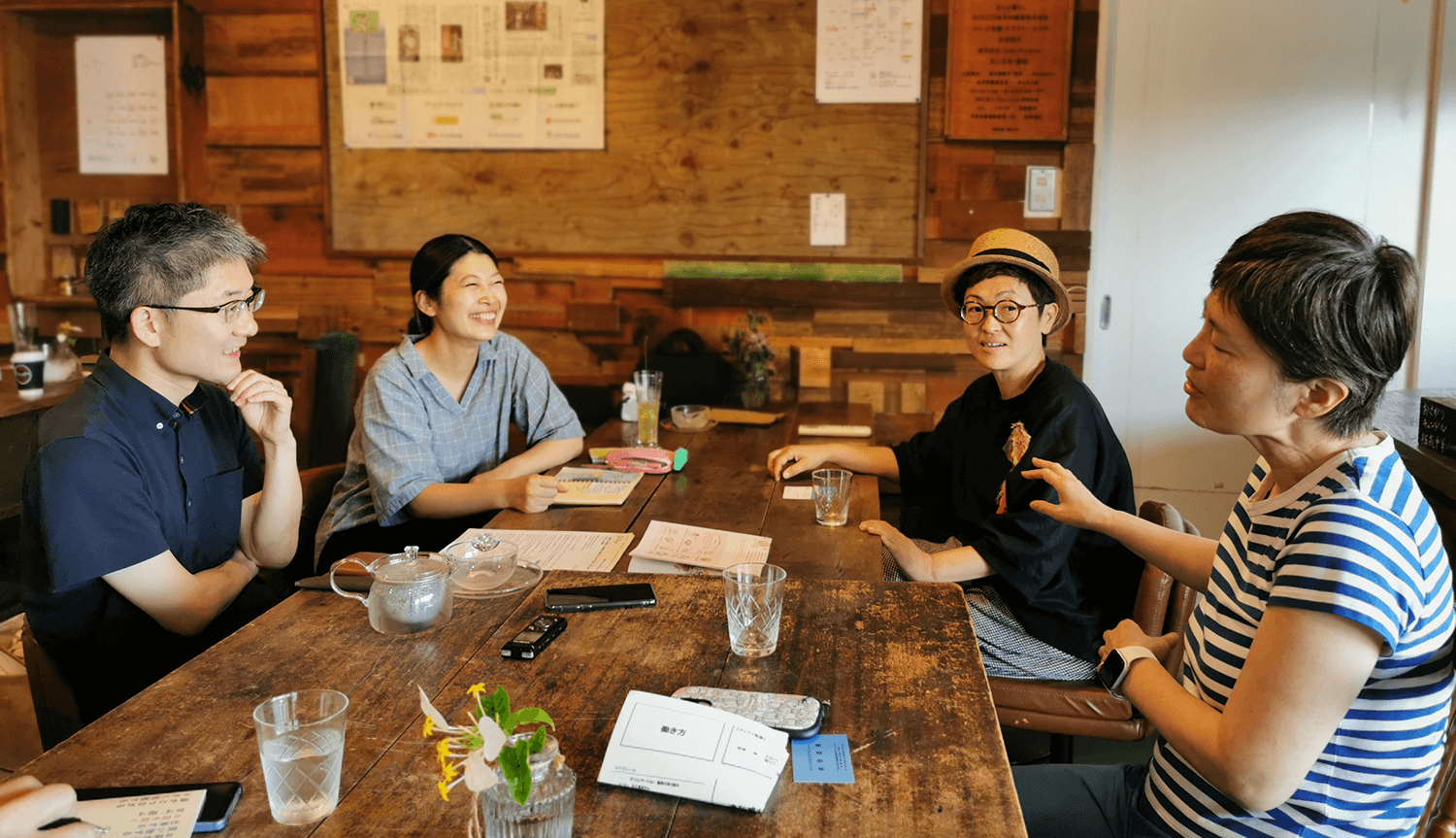
Creating a space station, a homegrown energy bar product
These activities in Tsuruoka City have produced some great results. For instance, Ms. Ryoko Sato, who worked as a payload flight controller for the Japanese Experiment Module “Kibo” of the International Space Station, has moved to the city and organizes space-themed events called “Tsuruoka Space Station” as her Nariwai small business. For the local people, someone who worked as a payload flight controller of the International Space Station is an unknown quantity. At these events, Ms. Sato displays a real-scale mockup of Hayabusa spacecraft and invites officials from a lunar roving vehicle manufacture to give a talk. “In the past, parents would discourage their children from pursuing a dream of becoming an astronaut. But now, parents here tell their children they may be able to become an astronaut,” Ms. Ito said. “At first, it was about creating small businesses, and it has now expanded to offer possibilities for the next generation.”
Moreover, a young woman fresh out of college took over and started taking care of 44 Japanese persimmon trees from an old woman who had been thinking of giving them up. This young woman has come up with the idea of making Kaki (persimmon) Energy Bar using locally-grown Japanese persimmons and rice, traditional agricultural products in the Shonai region in Yamagata Prefecture. Kaki energy bar products hit the selves of Natural Lawson convenience stores in April 2024. “I didn’t expect this project to produce businesses in wide-ranging fields,” said Ms. Ito.
Under One Roof, a community hub in Sugito Town, Saitama Prefecture
For her part, Ms. Maki Yaguchi, the other co-representative of Watashigoto Japan, has been running since 2021 a community hub called Job Creation Factory Under One Roof, while continuing to organize a lecture series titled “Our 30,000-yen-a-month-profit-making business” since 2024 in Sugito Town, Saitama Prefecture, north of Tokyo. This community hub offers a place for learning, a café, and rows of shelves housing a collection of 100 small shops, and a small lot store.
By engaging in these activities, Ms. Yaguchi said, people have come to think about not just their Nariwai small business but also what they can do for their own community. “The Nariwai project is about aiming to match what you love to do with what is good for a community. And in that sense, it is the smallest unit of social business, if you will,” she said. “Since they start a business in their local community, they invariably think about their locality. That’s why they naturally feel that it wouldn’t be meaningful unless their small businesses would be beneficial in terms of both profit and their community. That is considered cool and fashionable and such a culture is emerging.”
On top of that, Ms. Yaguchi believes that her project’s strength lies in the fact that it is not a game of endurance for everyone.
In the past, she worked at a public relations company, working to continue promoting consumption. Her job was to help sell products or services requested to pitch by her clients for their revenues. But it was uncertain about what kind of effect there would be on society or to whom her job brought happiness, which was the complete opposite of what she does now. “If I had continued working like that, I couldn’t have been able to imagine what I would be like in my later years in life. Therefore, I have shifted to creating a small business on my own in which I can see people face-to-face,” Ms. Yaguchi said.
So far, she has nurtured a number of entrepreneurs who make 30,000 yen a month in profit in a wide range of fields from fashion and sundry goods to sweets, learning to guide coordinator.
Ms. Ito, the co-representative in Yamagata Prefecture, chimed in. “We still have a pool of only 100 entrepreneurs, but Ms. Yaguchi has brought about a situation with more than 400 small business owners in Saitama Prefecture, which paints a picture of our near future and presents a goal for us,” Ms. Ito said.
How the two women met
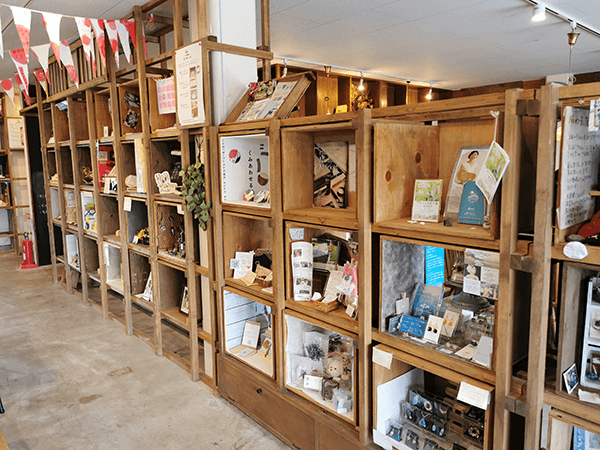
Watashigoto (my own business) Japan emerged from the encounter between Ms. Ito and Ms. Yaguchi, both of who had been doing their activities separately in Tsuruoka City and Sugito Town, during the course of the 2018 grant period. They both had read and drew much inspiration from the aforementioned book “Businesses generating 30,000-yen profit.” As Ms. Yaguchi engaged in the activity only in her local community, she would worry that her method was really effective despite having many fellow small business owners or she would wonder if her activity would help bring about change in society. This is because she was often told that what she did was just like “playing business.”
So, she talked to the book author, Dr. Yasuyuki Fujimura, about these concerns of hers, and he suggested that she should go meet Ms. Keiko Ito who was doing the same thing in another region. “So, I contacted Ms. Ito and took an overnight bus to meet her. Even though it was our first time to see each other, she kindly let me stay in her home,” Ms. Yaguchi recalled. As such, their first encounter came about through Ms. Yaguchi’s proactive action.
In 2015, when online meeting app Zoom was not commonly used, they decided to hold a meetup for those who could come from Tsuruoka City and Sugito Town and listen to a talk by Dr. Fujimura. “I felt tremendous energy just by bringing people together from Yamagata and Saitama prefectures, and we wondered how powerful it would be if we could do this on a national level. We were saying we would like to create such a platform and the word, platform, itself sounded cool,” Ms. Ito said.
The two female leaders hit it off and started working to create a platform for spreading a network of Nariwai small businesses. They sought to build a pool of necessary resources, expertise, human capital, and funding. To that end, they aimed to develop a system for tapping resources which otherwise were not readily available to them, in addition to earning money from holding lectures, Ms. Yaguchi said.
Ms. Ito, meanwhile, remembered that older women had built a nationwide network when she engaged in a nature-experience sector, and thought about applying that to the Nariwai activity. “If we do it on a national level, I think something will change,” she said.
After their students completed the program, they went on to launch their Nariwai program in their own places of residence. Currently, the Nariwai program has spread to 23 areas across the country, including Minamisoma City, Fukushima Prefecture, Kuzumaki Town, Iwate Prefecture, Iizuna Town and Shimosuwa Town, Nagono Prefecture.
As they say, persistence pays off. That’s exactly how Ms. Ito feels about her project. When she first started, she spent a lot of time explaining the advantages of having a side job. “At the time, one person said to me such a work style is not enough to make a living. But now, it is no longer necessary to talk about doing side jobs and I don’t get ridiculed any more. Times have changed a lot. I feel that more, especially after the pandemic,” she said. In other words, it turns out that the Nariwai initiative was ahead of the times.
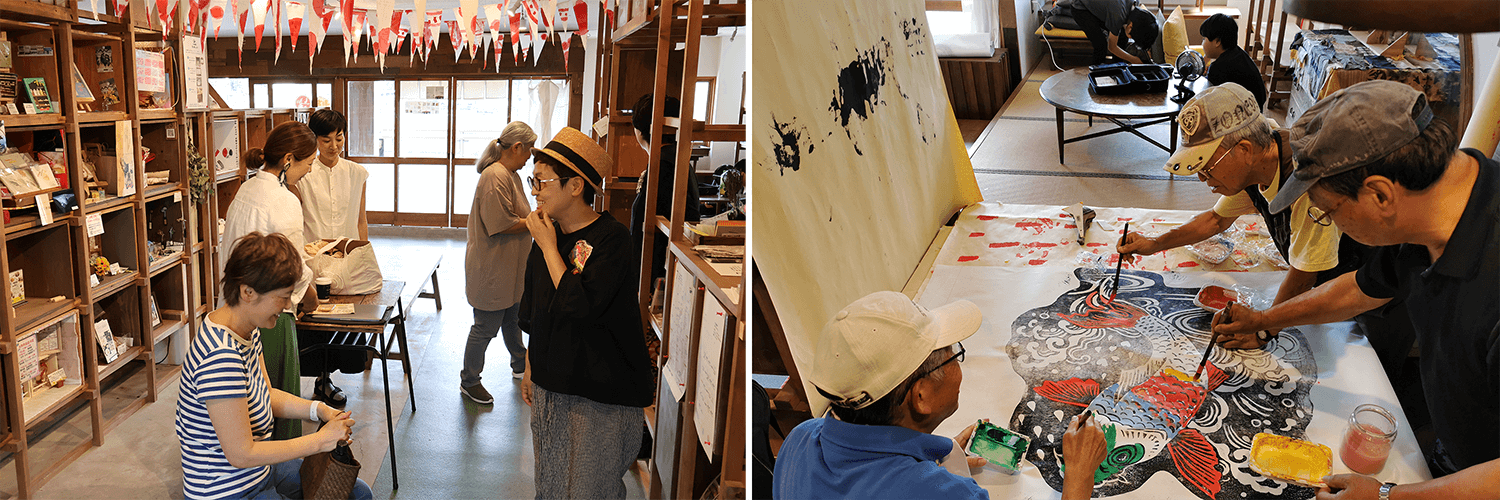
An evolution of Nariwai, Watashigoto Japan welcomes failure
Watashigoto (my own business) Japan sets out its principles “The 10 things we value.” They are characterized by their intention to focus less on negative psychological tendencies among Japanese people and instead express the principles in a positive way. Some of which are “Focus on excitement, not on correctness,” “No denying”, or “Failure is welcome.” This helps lower the psychological barrier to taking part in this small business entrepreneurship activity, making it easier for people to join the movement.
They are willing to share methods to organize lectures and programs in Ms. Yaguchi’s way in Saitama or Ms. Ito’s Tsuruoka way. “We will tell everything about the ways we do, including how to collect lecture fees and secure funding. The rest is left up to each one of them who can create programs suited to their own community. We have no control or power. Easier that way, right?” said Ms. Yaguchi with a laugh.
When asked further about what it means to have no control or power, she acknowledged that Ms. Ito and herself may have carried the torch at the initial stages. “In the first place, we are not an organization that is led by particular leaders. Each and every one of us rises up and becomes a torch bearer in their own right. Leadership is borne by each of us a little by little, so we are quite light-footed,” Ms. Yaguchi said.
Moreover, the Watashigoto Japan activity has allowed them to work with the government on a variety of things. So far, there has been a total of 400 people who completed their programs and each one of them does their best in various areas, which Ms. Yaguchi said serves as a big driving force for herself and Ms. Ito. “All these people cheer for us from different parts of Japan. Thanks to a network built through Watashigoto Japan, there was a time when an outpouring of support came in to help a community center in a rural part of Suigito Town via cloud funding,” Ms. Yaguchi said. “What they do in their local communities do not necessarily serve only the interests of their communities. Bur rather their activities go far beyond. We are all feeling that now.”
Ms. Ito thinks that the secret to their success is that they have decided to spread the Watashigoto Japan activity in a way that is not focused on money-making. And this is because she follows in the footsteps of her mentor who engages in disaster relief efforts in a similar way. When it comes to disaster relief, it is uncertain who shows up as volunteers on a given day and her mentor asks each of them about what they are good at. “I have found such an amoeba-like organization management very strong. Any organization becomes old and outdated after 10 years,” Ms. Ito said.
As such, both Ms. Yaguchi and Ms. Ito would rather establish an overall framework and let new members decide at their own discretion by asking what they want to do and how they want to go about it. In a sense, this approach is based on a sense of autonomy, something that is not so familiar to many Japanese people. “Actually, they have a lot of ideas they would like to try. But it is just that they are usually mum about them. If we can create what can be called ‘a culture of open talk,” we can create an environment encouraging everyone to speak up and forge ahead,” Ms. Yaguchi said, referring to their formula for success. She makes it a rule to only say “It sounds good.” This women-led vibrant culture of small business entrepreneurship, if implemented all across Japan, has the potential to help revive local economies.
Their future goals and dreams
Ms. Ito has continued doing this Nariwai project for 10 years now, and she is now thinking about going back to working as a nature guide. “I used to organize a project, called Nature Mom, which encouraged parents and children to play out in nature. But now, it should be more like Nature Granny,” she said.
For Ms. Ito, nature seems to have formed the core of who she is. Her sixth-grade homeroom teacher specialized in science and would often take her and her classmates out into nature even outside of science classes. That’s how she began developing an interest in exploring nature, she said.
Meanwhile, Ms. Yaguchi hopes to study abroad at places like Schumacher College in England or Danish folk high school (Folkehøjskole) in Denmark. “I feel that I have been working hard to produce outputs over the past 10 years,” she said. It may be time for her to learn and acquire something new. “And I would like to make a place where I can have fun even when I become a senior in this greying society,” she said.
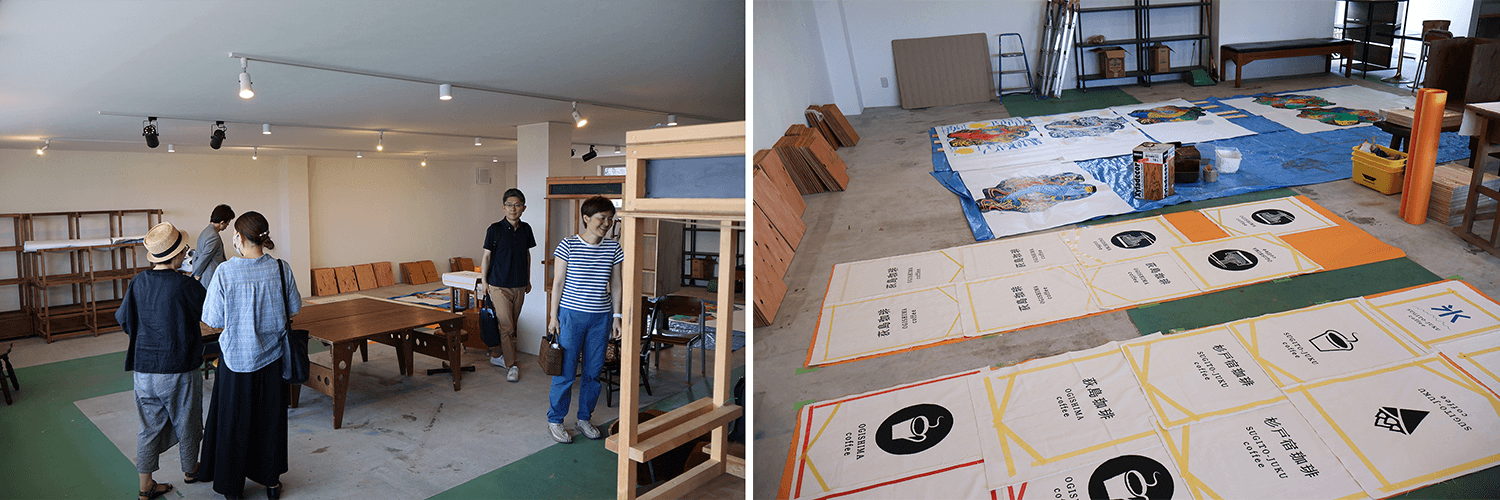
◯ A visit to an ideal way of a community hub, Under One Roof
Ms. Maki Yaguchi’s place, Job Creation Factory Under One Roof, is located in Sugito Town, northeastern part of Saitama Prefecture, about an hour train ride away from central Tokyo. The community hub is just a 5-minute walk from Tobu-Dobutsu-Koen Station on Tobu Skytree Line. The office of Watashigoto Japan is housed here. As soon as you open the door, you feel a vibrant atmosphere inside the building and recognize that it represents an ideal community hub facility.
A public bicycle parking lot-turned-community space
This facility, located along Oootoshi Furutone River near the station, used to be a public bicycle parking lot facility and has been transformed into a community hub, said Ms. Yaguchi, a co-representative of Watashigoto (my own business) Japan. When you open the old-familiar sliding door, you hear cheerful laughs and voices of children playing around inside, creating a fun atmosphere within the facility.
The use of many wood materials gives warmth to the space inside the building. In the left side is a small raised tatami floor for children to play on after school. Beyond that area is a rental space of about 3.3 square meters. When the Toyota Foundation team pays a visit, several people are seen painting a giant floating lantern to be used for Furutone River Floating Lantern Festival. Ms. Yaguchi’s father takes part in the painting, and the participants appear eager to revitalize the town.
And there are 100-store shelves in front of the rental space. Small shelf spaces are rented out and anyone can have a small shop of their own, selling such things as handmade accessories, scarves, and recommended books. A staff member in charge of the shelf stores is friendly and easy to talk to.
Nestled in the far right-side corner is a café called “Caring Kitchen.” It offers reasonably-priced menu items, such as digestion-stimulating lunch using locally grown ingredients and homemade fermented seasoning as well as fermented spicy curry. Needless to say, it also has coffee and soft drinks on the menu. The members of the Toyota Foundation team have a hard time deciding what to order from a variety of menu items.
What’s more, a make-shift mom-and-pop candy and snack shop, called Fusaya, opens in front of the community hub building almost every Wednesday. At a time when such mom-and-pop stores have been on the decline, this make-shift shop offers children a rare experience from the good old days of Japan. To go up to the second floor, you need to walk up a slope, a remnant of what once was a bicycle parking lot facility. The second floor is being prepared to serve as a work place and a space for meetings and conversations. At the time of the visit, painted floating lanterns are left on the floor to dry.
Not so many community facilities are said to have high utilization rates amid the shrinking population and aging of society. However, this one is filled with energy and feels quite inviting as it is close to the train station. As such, it can literally serve as a role model for community hub facilities.
